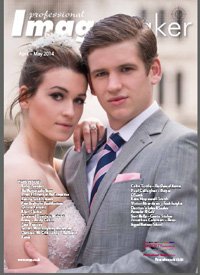articles/Qualifications/laf-page3
Fellowship - Associateship - Licentiateship Technical Quality Requirements - part 3 of 1 2 3 4 5 6 7 8 9 10 11 12 13 14
by Tom Lee Published 01/04/2014
Basic Quality Issues
For starters, all dust spots from the camera detector need to be attended to and the sharpening needs to be appropriate, a topic in itself and one which does not lend itself to measurement. The best advice is that the shot should look sharp (if this is appropriate) but show no sign of haloes. The same goes for noise; some of the images presented in the 16x20 competition were distinctly noisy - but if you do repair the noise then you must ensure your handiwork is not detectable.
Overworking a print also needs to be guarded against; there are too many images in competitions these days which show obvious signs of being worked with 'filter' programs to such an extent that banding is visible - look hard at the print! Although this article is concerned with purely technical matters rather than aesthetics, you should turn every print upside down and view it from a short distance to judge whether any highlights need toning down especially if they are dragging the eye out of the picture. Artistic matters we leave to the author of the image/panel - that is a different discussion.

Colour Parameters
These days, all colour parameters can be accurately measured to ensure that a printed output is a close representative of the file from which it comes. It does, however, require a spectrophotometer, the software to carry out the measurements and a sufficient knowledge level to interpret any findings. Aside from this though, it is still possible to carry out some simple tests to ensure that your printer is working normally. As a minimum the shadows and highlights should be tested.
In the test target shown, a series of bold letters are placed against backgrounds of different densities. With a correctly profiled set-up you should see differences up to 252 at the highlight end and down to 15 or 20 RGB points at the shadow end. Failure to do so would indicate a poorly matched profile or incorrect settings choice - for example, if you fail to check Black Point Compensation, your shadows will block from about 50 RGB points downwards.
Please Note:
There is more than one page for this Article.
You are currently on page 3
- Fellowship - Associateship - Licentiateship Technical Quality Requirements page 1
- Fellowship - Associateship - Licentiateship Technical Quality Requirements page 2
- Fellowship - Associateship - Licentiateship Technical Quality Requirements page 3
- Fellowship - Associateship - Licentiateship Technical Quality Requirements page 4
- Fellowship - Associateship - Licentiateship Technical Quality Requirements page 5
- Fellowship - Associateship - Licentiateship Technical Quality Requirements page 6
- Fellowship - Associateship - Licentiateship Technical Quality Requirements page 7
- Fellowship - Associateship - Licentiateship Technical Quality Requirements page 8
- Fellowship - Associateship - Licentiateship Technical Quality Requirements page 9
- Fellowship - Associateship - Licentiateship Technical Quality Requirements page 10
- Fellowship - Associateship - Licentiateship Technical Quality Requirements page 11
- Fellowship - Associateship - Licentiateship Technical Quality Requirements page 12
- Fellowship - Associateship - Licentiateship Technical Quality Requirements page 13
- Fellowship - Associateship - Licentiateship Technical Quality Requirements page 14
1st Published 01/04/2014
last update 09/12/2022 14:55:36
More Qualifications Articles
There are 0 days to get ready for The Society of Photographers Convention and Trade Show at The Novotel London West, Hammersmith ...
which starts on Wednesday 14th January 2026





